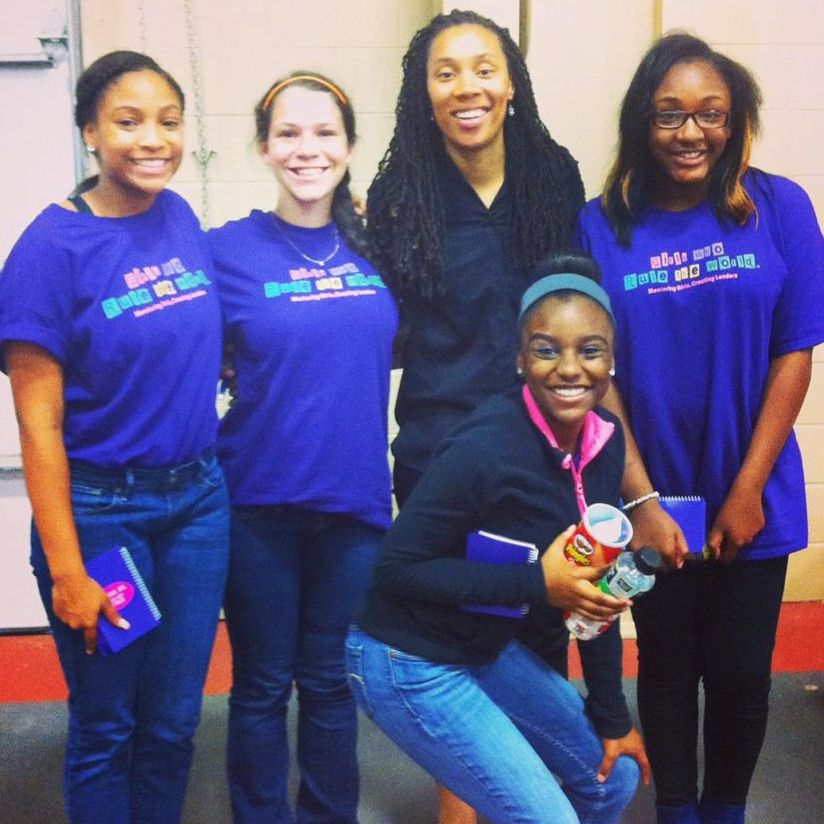Trina Fletcher: Making a community impact
One of the events was a workshop designed to introduce the high school and junior high-aged participants to the STEM disciplines – science, technology, engineering and mathematics. The National Society of Black Engineers (NSBE) sponsored the toy car-building workshop and Trina Fletcher, an engineering education graduate student in her second year at Purdue University, was leading the effort.
“It was just phenomenal! We were able to put a mentor with a group of four young women,” she says. “We had a competition once they got done building the cars. So, it was nice to see the young ladies be excited about how far their car went or to see how water and oxygen were able to make this car run. It was very exciting, very fun.”
Steve Harvey is best known as a comedian and actor, but along with his wife, Marjorie, created a foundation with the mission of “developing programs and supporting community-based organizations that foster excellence in the areas of health, education and social well-being within urban and ethnically diverse communities.” The foundation’s mentoring program is the cornerstone of its mission.
 Trina Fletcher (second from right) with participants of the Girls Who Rule The World mentoring weekend.
Trina Fletcher (second from right) with participants of the Girls Who Rule The World mentoring weekend.In her role as workshop leader, Trina worked with both NSBE and the Foundation to make sure the right supplies were ordered, the 25 women volunteering as mentors were properly trained, and the workshop was completed in the short amount of time it was given.
“It was just nice to have the opportunity to work in that setting with so many underrepresented young girls at that age,” she says, “because a lot of my peers and my mentors did not have those types of opportunities where you could go to a camp and learn about science and technology and engineering from black, female engineers. So, it was an honor to be able to lead that workshop and work directly with those young women.”
Virginia Booth Womack, former interim executive director of NSBE, recruited Trina for the leadership role. Virginia, who is director of the Minority Engineering Program at Purdue, had seen Trina in action at similar NSBE-organized camps.
“Trina is thorough. She has a broad band of knowledge around what’s essential when you’re dealing with young people,” Virginia says. “Trina’s background in engineering education just brings a different angle of focus, not only to the training piece for the other students who are serving as mentors, but in communicating with the Steve Harvey team the importance of what we’re doing, because they’ll want to know why our mentoring program is important.”
She says the foundation’s on-site team was impressed with how the workshop ran so smoothly and the impact it had on the girls, and said it “raised the bar” on what they can expect from NSBE. Virginia credits the success to Trina and her passion for affecting the lives of young people in a positive way.
“There’s a passion for giving back that came from somewhere. Either someone did it for Trina or she wished someone had. It’s not haphazard involvement. It’s very focused.”
Trina thinks everyone should invest time into getting young children and teens exposed to STEM education. She is happy to be doing her part for the next generation of scientists and engineers, especially as a George Washington Carver fellow at Purdue.
“If it wasn’t for Purdue, former President Dr. Martin Jischke and the College of Engineering,” Trina says, “I don’t think these doors would have been open. Engineering education, in particular, allows me to still have that social impact that I may not be able to have in another technical program. I’m just really thankful for the opportunities that I have been given.”
